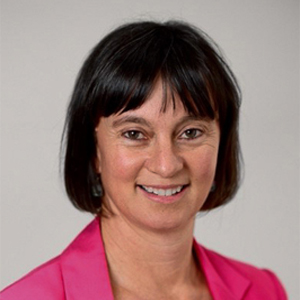The Office of the Children’s Guardian (OCG) is considering the benefits of regulating child safe standards in New South Wales. It released a Regulating Child Safe Organisations Discussion Paper (Discussion Paper) on 28 February 2019 which proposes changes that would make it compulsory for many organisations in New South Wales to meet the child safe standards. The OCG sought feedback from the public by 29 March 2019.
CompliSpace, is a leading provider of Governance, Risk, Compliance and Policy (GRC&P) programs and consulting services to a variety of organisations across a range of industry sectors. One of our main client groups are our almost 600 non-government schools, over 150 of whom are in NSW. We are engaged by six Catholic Education Offices as well as most of the leading Catholic Orders that provide education services. We also assist community housing providers, churches, aged care providers and financial services companies.
It is in this context that CompliSpace was significantly involved in the implementation of child safe standards (or their equivalent) in Victoria, Queensland, South Australia and Western Australia. Accordingly, CompliSpace recently made a detailed submission to the OCG and responded to the questions in the Discussion Paper.
Part 1 of this article sets out CompliSpace’s response to Questions 1 to 4 of the Discussion Paper (together with some background information). Part 2 will set out our response to Questions 5 to 9.
Background: Compliance with Child Safe Organisation Regulation in NSW and around Australia.
We note that, in 2018, all Australian governments accepted (either in whole or in principle) the recommendations of the Royal Commission into Institutional Responses to Child Sexual Abuse (Royal Commission) that:
- all child-related institutions implement nationally consistent child safe standards
- the national child safe standards be based on the Royal Commission’s recommended 10 Child Safe Standards, adopted into the National Principles for Child Safe Organisations (National Principles), and endorsed by the Coalition of Australian Governments (COAG)
- the standards be mandatory for all institutions engaging in child-related work and embedded in state and territory legislation
- an independent oversight body in each state and territory has responsibility for enforcing the standards (but that this can be delegated to sector regulators, e.g. school registration bodies).
We note also that the Royal Commission’s recommended child safe standards have now been incorporated into the National Principles (which are broader than the Royal Commission’s Child Safe Standards) and that these have now been endorsed by COAG. Therefore, although the Discussion Paper refers to implementation of the Royal Commission’s child safe standards as the basis for Child Safe Organisation Regulation in NSW, any mandatory child safe standards/principles in NSW (NSW mandatory child safe principles) should be based on the National Principles.
We are therefore focusing our submission on those questions in the Discussion Paper relating to the implementation of the National Principles for Child Safe Organisations through regulation.
One of the main issues with any approach to regulating NSW child-related institutions through the NSW mandatory child safe principles will be how these work with other registration/ licensing/ funding requirements. While many NSW-only organisations will face this issue, it will be magnified for national or cross-jurisdictional organisations that could have to meet a multitude of different child safe organisation, registration, licensing and funding regulations in multiple jurisdictions. We have a number of clients that would face this issue, as they are large organisations with multiple schools in multiple states and territories. It will be our responsibility to assist them to comply with all of their obligations.
We therefore whole-heartedly support the recommendation of the Royal Commission that the states’ and territories’ approach to child-safe organisation regulation should be nationally consistent, based on similarly worded principles and subject to similar regulation.
Q1: In what ways is a principle-based approach a good fit for regulating child safe organisations in NSW?
Q2: In what ways would a different approach be a better fit for regulating child safe organisations in NSW?
We agree with a principle-based approach to mandatory child safe standards, given the wide range of organisations and sectors to which these will apply and the resulting need for flexibility in how organisations comply. However, the difficulty with a principle-based approach is that the overarching, broad nature of the principles gives little direction as to how an organisation can in fact comply and how that compliance will be measured.
Therefore, in addition to the high level NSW mandatory child safe principles, we also recommend that there should be specific sector-based requirements that sit under these principles, providing more detailed compliance requirements and setting out how compliance will be measured in the relevant sector. For example, Ministerial Order 870 in Victoria sets out very specific requirements with which schools in Victoria must comply in order to demonstrate their compliance with the much broader, non-sector-specific Victorian Child Safe Standards. These requirements are then incorporated into the Victorian Registration and Qualifications Authority (VRQA)’s Minimum Standards and Other Requirements for the Registration of Schools and further explained, with respect to the evidence that will be required to meet those standards, in VRQA’s Guidelines to the Minimum Standards.
Q3: What types of organisations should be regulated to meet child safe standards in NSW?
Q4: What types of organisations should not be regulated to meet child safe standards in NSW?
The kinds of organisations that are regulated in NSW should align with those that are regulated in other jurisdictions. Taking a nationally-consistent approach to regulation means that organisations that work across jurisdictions will not have to meet different requirements.
We note that, under the Child and Youth Risk Management Strategy requirements in Queensland, organisations that fall within the scope of the Blue Card system (because they either employ people in regulated employment or are a regulated business) are required to develop, implement and maintain a Child and Youth Risk Management Strategy – the requirements of the Child and Youth Risk Management Strategy include concepts that are similar to most (but currently not all) of the National Principles. These organisations are listed below.
| Organisations falling under the Queensland Blue Card System |
|
- Residential facilities (other than licensed care services)
- Boarding facilities in schools
- Schools
- Education and care services (i.e. kindergarten, OOSH)
- Commercial child care
- Churches, clubs and associations involving children
- Health, counselling and support services where services are provided to or mainly to children and/or require physical contact with children or where no-one else is present
|
- Private teaching, coaching or tutoring
- Education programs conducted outside school
- Child accommodation services including home stays
- Religious services or activities directed at or involving children
- Sport and active recreation programs
- Cadet programs in emergency services
- School crossing supervisors
- Out-of-home care
|
Victoria has not limited the organisations to which its child safe standards (which, again, are similar to most but currently not all of the National Principles) apply to only those that fall within the scope of its Working With Children Checks system. In Victoria, the organisations that have to comply with its Child Safe Standards are all organisations that:
- provide services specifically for children
- provide facilities specifically for use by children who are under the organisation’s supervision; or
- engage a child as a contractor, employee or volunteer to assist the organisation in providing services, facilities or goods.
Similarly, the South Australian Child Safe Environments obligations (although currently only somewhat similar to the National Principles) apply to state authorities and all organisations that provide services wholly or partly to children in one or more of the following categories:
- health
- welfare
- education
- disability
- sporting or recreational
- religious or spiritual
- childcare or residential
- cultural
- entertainment or party.
The kinds of organisations that are required to comply in Victoria and South Australia are therefore much broader than those in Queensland.
Victoria separated the organisations that have to comply into two categories and gave each different compliance dates. For example, registered government and non-government schools, hospitals and disability service providers had to comply from at least 1 August 2016 and religious bodies including churches had to comply from 1 January 2017.
In our view, a broader reach is preferable to a narrow one, as this will ensure that organisations that work across jurisdictions can, by requiring that all of their entities meet the broadest requirements, in effect meet the National Principles regardless of where in Australia their entities are located. We would therefore recommend that NSW’s mandatory child safe principles apply to organisations similar to those that are regulated in Victoria and South Australia rather than the more limited Queensland model.
Click here to read Part Two of this series.



